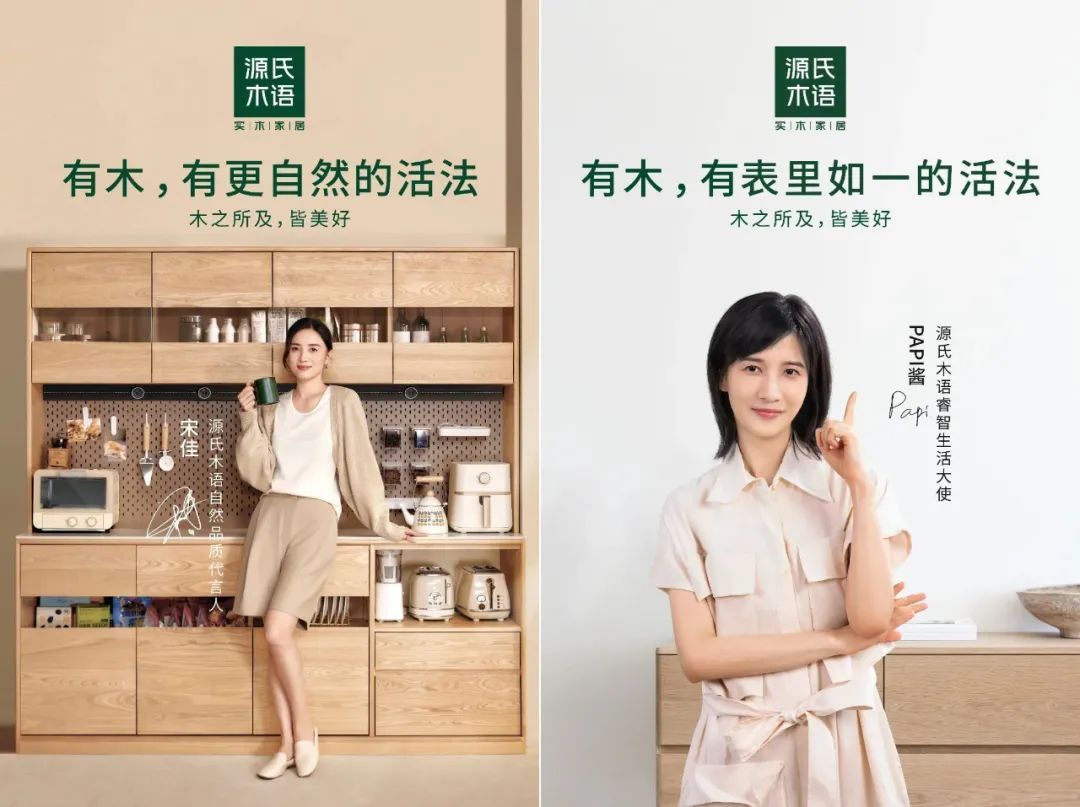As a leader in the solid wood furniture brand industry, Yeswood, a portfolia company of GenBridge Capital, officially announced a series of brand upgrades in July, 2023.
The brand logo has been redesigned, and the new logo incorporates “solid wood home furnishings,” aiming to let more users understand the possibilities that solid wood furniture of Yeswood can bring to their living spaces.

The brand unveiled a new TV commercial featuring a series of questions and answers under the theme “Do you have wood?”, strengthening Yeswood’s positioning and creating brand memory points.
Yeswood has signed new brand spokesperson and ambassadors, officially declaring Song Jia as the natural quality spokesperson for Yeswood and Papi as the wise living ambassador for Yeswood.
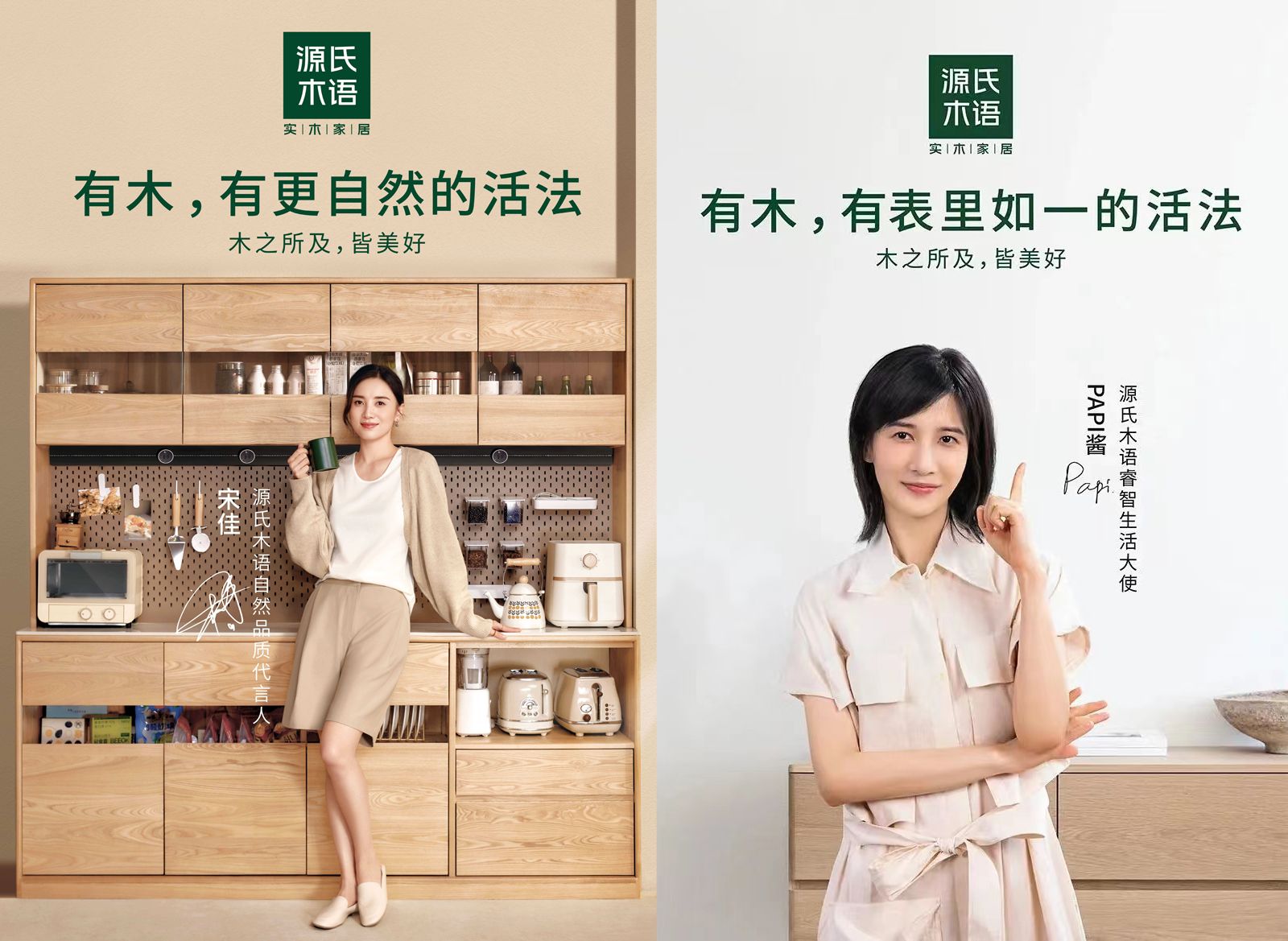
As of this brand upgrade, it has been 13 years since Yeswood traversed from online inception to becoming a billion-scale national brand. However, for a long time, Yeswood maintained an exceptionally low-key marketing style, reflecting the modest values of its founders. GenBridge Capital first met the founders of Yeswood in 2018, but it was only in the past two years that the topic of “why Yeswood can achieve rapid growth” has gained increasing attention from the public.
Starting with online solid wood furniture, expanding categories to continuously meet changing consumer needs, and later expanding offline channels with over 500 retail stores nationwide… GenBridge Capital has accompanied and assisted in the growth of Yeswood, accumulating insights into product innovation, channel upgrades, and supply chain refinement. However, what impressed the GenBridge team the most is the company’s original intention of providing value to users.
“Water with a source and wood with a root,” remembering where one comes from and knowing where one is heading. As founders of Yeswood said, “Being able to provide consumers with a home environment that is satisfying, healthy, and beautiful is what inspired the establishment of Yeswood. We will remember who we are and pass on this value.”
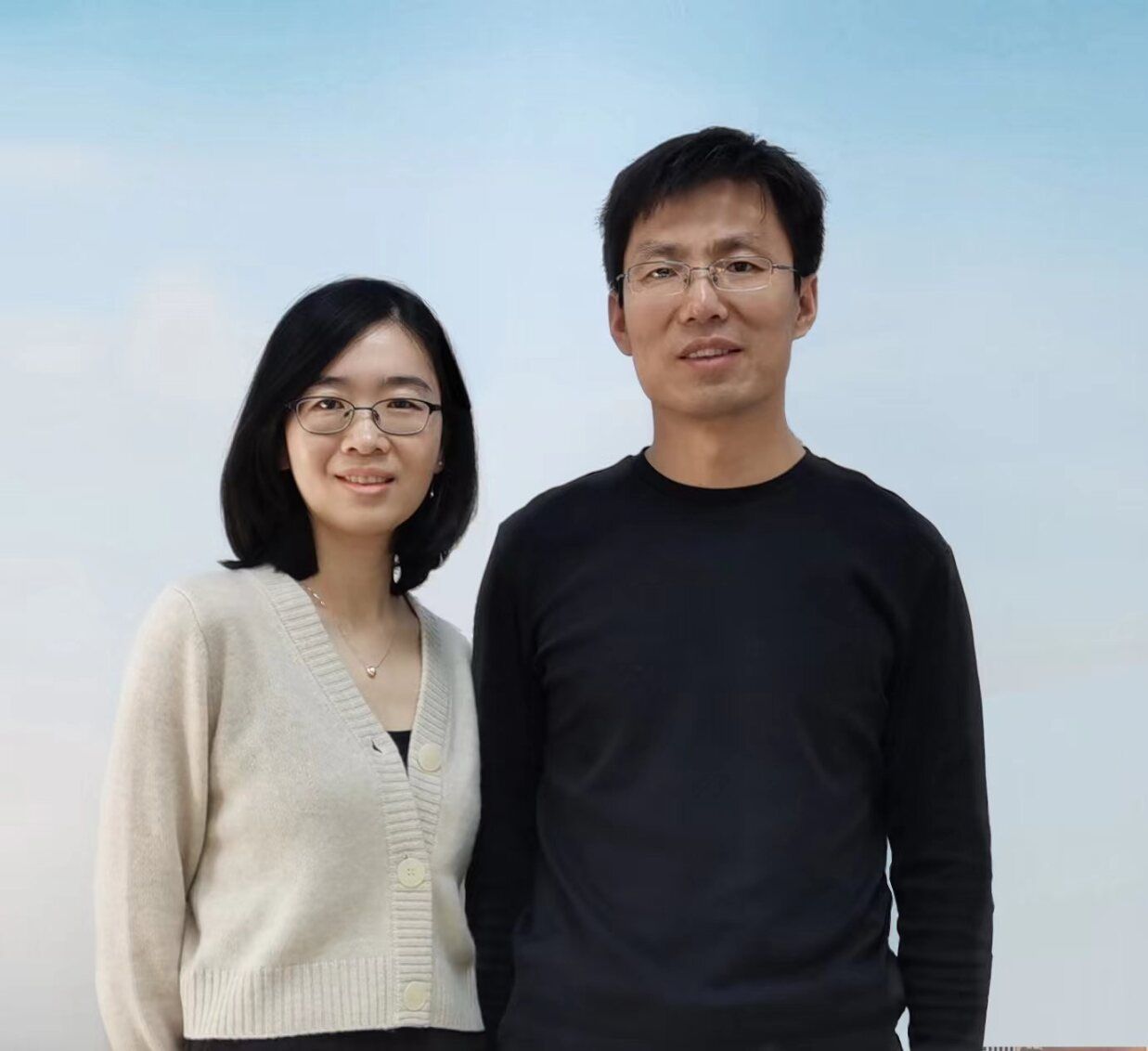
Amy Zhang and Max Zhang, Founders of Yeswood
As a partner supporting and accompanying the company’s growth, GenBridge Capital has recorded the entrepreneurial story behind Yeswood ‘s brand upgrade from its perspective, involving the founders’ “original intention” and the company’s “growth” along the way.
Wood-sourced and Customer-centered
In 2009, Max Zhang and his wife Amny Zhang was planning to furnish their house in Shanghai. At that time, Max had already been working in the furniture industry for some time. When friends asked them, as “industry insiders,” where to buy environmentally friendly and healthy furniture, the couple found it challenging to recommend a suitable place. Formaldehyde was the most concerning and frightening issue for all consumers when buying furniture, prompting them to think: If we were to buy furniture for our family and friends, how would we choose?
Desiring “environmental health,” “durability,” “warmth and a sense of security,” and a “natural lifestyle”… When these words appeared in the minds of the founders, they realized the answer was solid wood furniture.
Today, solid wood furniture is becoming the choice for more and more consumers. The past few years of the pandemic have made people increasingly value their home environments, focusing more on health and healing. The stress of urban life has also led more tired young people to want to “heal themselves.” The relaxation brought by the original wood style seems to gently tell people, “Comfort and pleasing oneself are all that matter.”
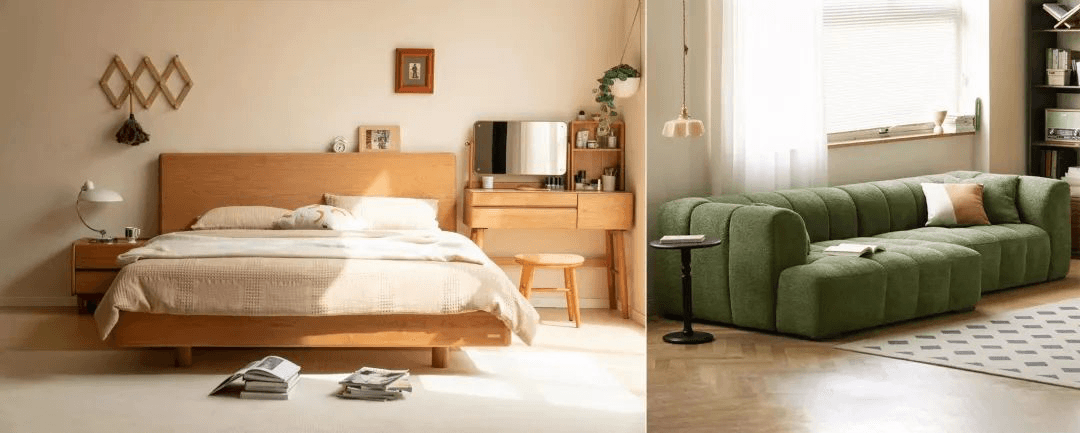
According to the statistics of the home industry’s new media “HOFUR,” solid wood furniture has continuously gained recognition and favor from consumers in the past few years, maintaining growth. The belief that sprouted when Yeswood’s founders firmly chose to make solid wood furniture 13 years ago has gradually grown into a widely recognized value.
Currently, Yeswood boasts more than 3,000 products, with over 20,000 SKUs, making its richness comparable to creating a “Chinese version of IKEA.” However, beyond providing diverse choices, the challenge lies in designing and shaping furniture that aligns with consumer aesthetics, testing the brand’s production strength.
For Amy, being true to oneself is the most important: “Don’t fear being the same as everyone else, and don’t fear being different. Everyone needs to find their own expression.” She also injects her values into Yeswood’s design philosophy: “Merely pursuing a good appearance is a misinterpretation of the essence of design. Conveying value to the user, maintaining consistency in quality and appearance is the true meaning of design.”
Yeswood’s products are created by continuously communicating with consumers, researching their daily lives, understanding user needs in practical scenarios, and building products centered around customers. The design evolves with people’s daily lives, incorporating many ingenious ideas. For example, in addition to fulfilling basic functions, solid wood beds may have advanced features like storage and lighting; smart bedside tables can charge devices and respond to voice commands; dressing tables can be made adjustable and mobile, meeting the needs of both large and small spaces.
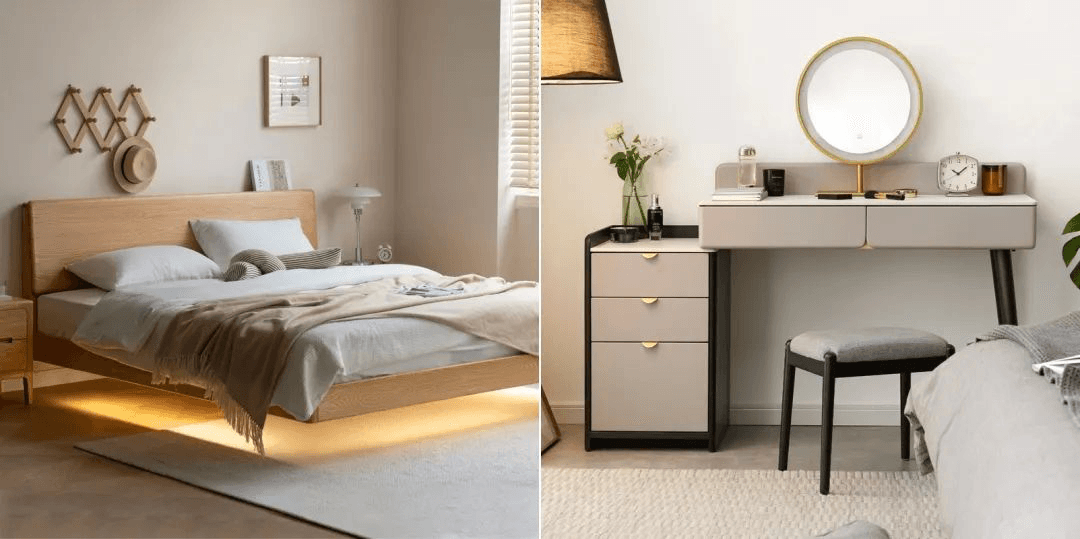
As more and more young people from the 80s, 90s, and 00s become the main consumer group for furniture shopping, Yeswood has been expanding in response to changing demands. The company meticulously combines materials, workmanship, performance, and other aspects to finely match the needs of different consumer groups.
For consumers pursuing a high-quality lifestyle, Yeswood introduced light luxury series with high-standard materials to further elevate the product quality. For users with different functional needs, Yeswood continuously upgrades from basic functions. Based on the foundation of “health, environmental protection, and durability,” additional features such as storage, LED strips, and power outlets are incorporated to meet the needs of a convenient lifestyle. Catering to enthusiasts of different styles, Yeswood offers a variety of styles, including original wood, cream, light luxury, minimalism, vintage, and wabi-sabi, cleverly integrating the “commonality” and “individuality” of home consumption.
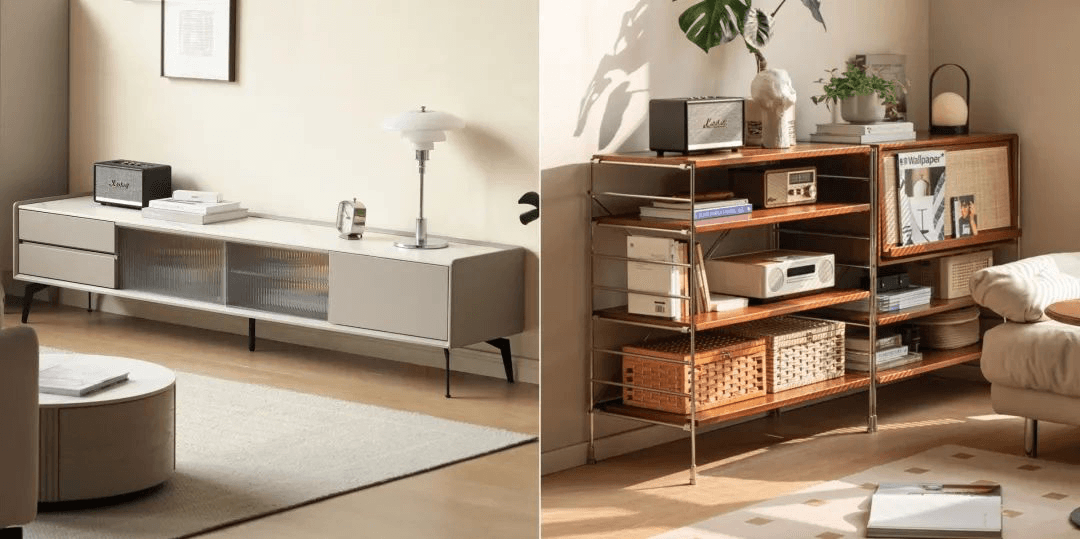
In terms of pricing and services, Yeswood’s philosophy is “within reach, affordable to everyone.” Within a broad price range, consumers with different needs can find the most cost-effective products. The reason behind making prices affordable to the majority lies in Yeswood’s advantages in the supply chain. By continually integrating the upstream supply chain to reduce costs and promoting intensive, mechanized, and modernized production, the company adopts a more economical approach to manufacturing high-quality products, offering consumers better value for money.
As a brand that started online, Yeswood faced a very outdated solid wood furniture supply chain in its early development. Most factories were small-scale or even workshops, and the products they provided were mostly for export with low quality. The rise of e-commerce channels engendered Yeswood’s scalable online presence, leveraging the advantages of scale to transform the upstream supply chain. The company collaborated with factories to research more high-quality and environmentally friendly furniture production processes, injecting its technology and experience into every aspect of product design, materials, paint, hardware, and production quality control.
The founders recognize that there is still significant room for improvement in the efficiency of China’s solid wood furniture supply chain. Over time, an increasing number of consumers can enjoy high-quality products within a certain price range as the supply chain becomes more efficient.
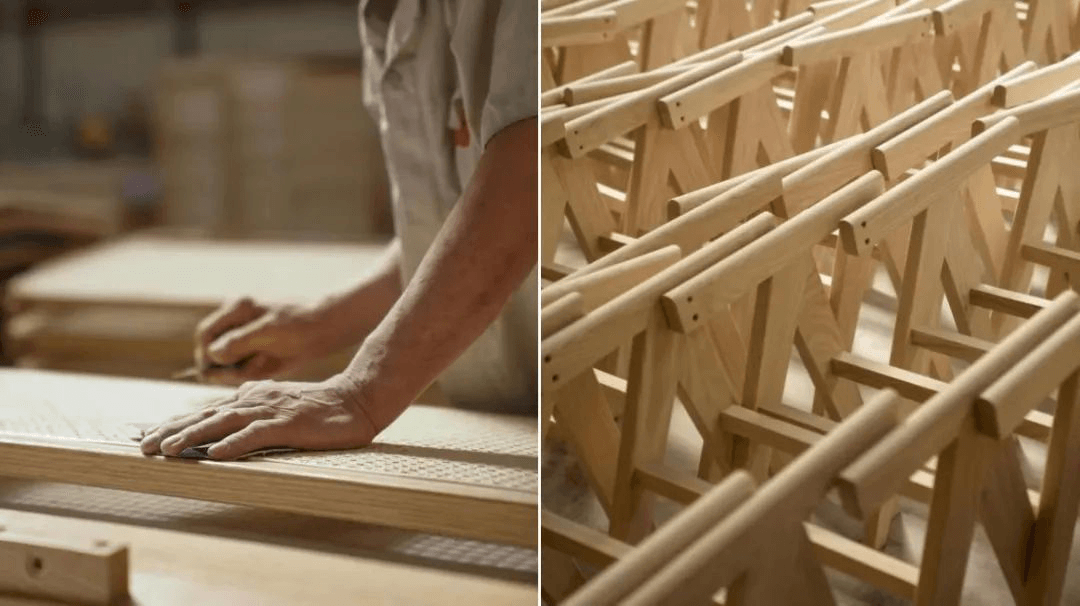
Upgrading Services Online and Offline
When Yeswood initially opened its Taobao store, both Max and Amy were deeply involved in every aspect, including store design, product selection, photography, image editing, graphic design, and after-sales service. Even in 2011, when Amy welcomed her first child, she continued to personally handle tasks such as shipping and after-sales service for the Taobao store.
Amy has shared that being directly involved in customer service, observing consumer reviews, has been the greatest source of both satisfaction and anxiety in their entrepreneurial journey. “In the early days, there were times when we were extremely busy. However, seeing positive feedback from consumers, especially when loyal customers not only make repeat purchases but also recommend our products to friends, brings immense joy and gratitude. Yet, it also brings a sense of responsibility and pressure. Max and I must strive to meet these expectations to justify the trust placed in us.”
Max shares a similar understanding of the Yeswood brand. For a significant period, the company refrained from actively engaging in extensive marketing efforts. “We aimed to build a ‘slow’ brand. First and foremost, we wanted to establish a solid reputation for product quality and service among consumers.”
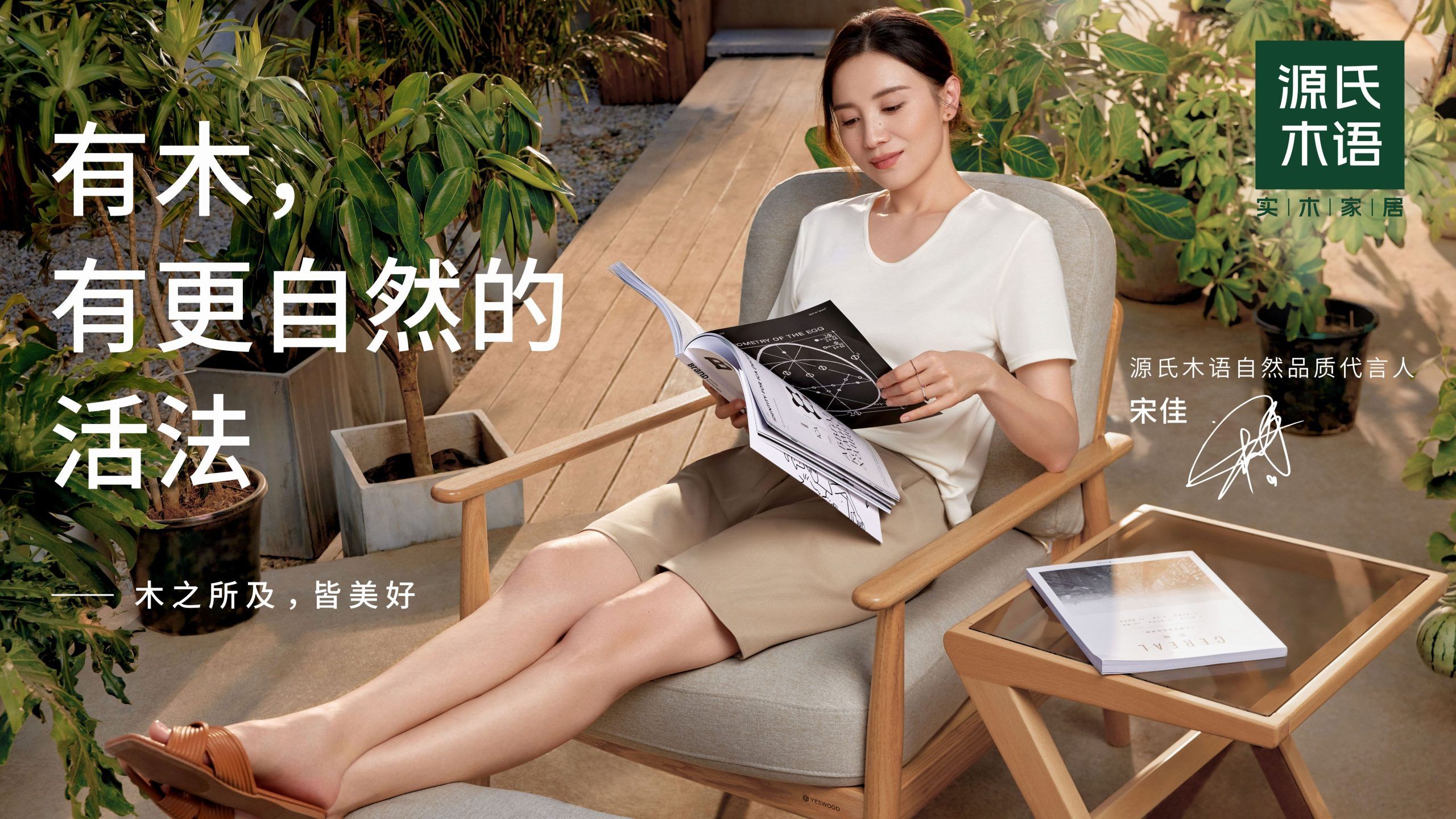
To this day, the contact information of the founders remains on Yeswood’s official public platform. Consumers can directly email the founders with suggestions, opinions, complaints, or thoughts on the concept of a natural and beautiful lifestyle, and they will receive timely responses.
Yeswood has invested considerable effort in refining its services. Large furniture delivery and assembly have been persistent pain points. Third-party logistics primarily focus on small parcel delivery, while large furniture delivery has often relied on various local dealers, resulting in inconsistent service quality. Yeswood is actively building and refining a nationwide delivery and assembly network in major cities, standardizing service details such as the appointment process for delivery personnel, training for various furniture installations, and paying attention to details like wearing shoe covers and cleaning up waste during installations. All these service quality aspects contribute to consumer satisfaction and require continuous standardization and improvement.

As a brand that started online, Yeswood has gradually expanded to offline channels. The company currently operates over 500 stores, with plans to exceed 1,000 stores within the next three years. In offline settings, which provide a more immersive product service experience, Yeswood curates selections tailored to specific locations, creating unique, immersive experiences that engage consumers. For instance, the Longhu Tianjie store in Shanghai combines nostalgic elements like exclusive memories of palm-leaf fans, wicker chairs, and dog-tail grass with home scenes, evoking a sense of nostalgia. The striking Chinese character “木” (wood) window design at the front of the Wanda store in Dongli, Tianjin, instantly captures consumer attention. Some stores also feature a dedicated sleep zone, offering a one-stop sleep experience.
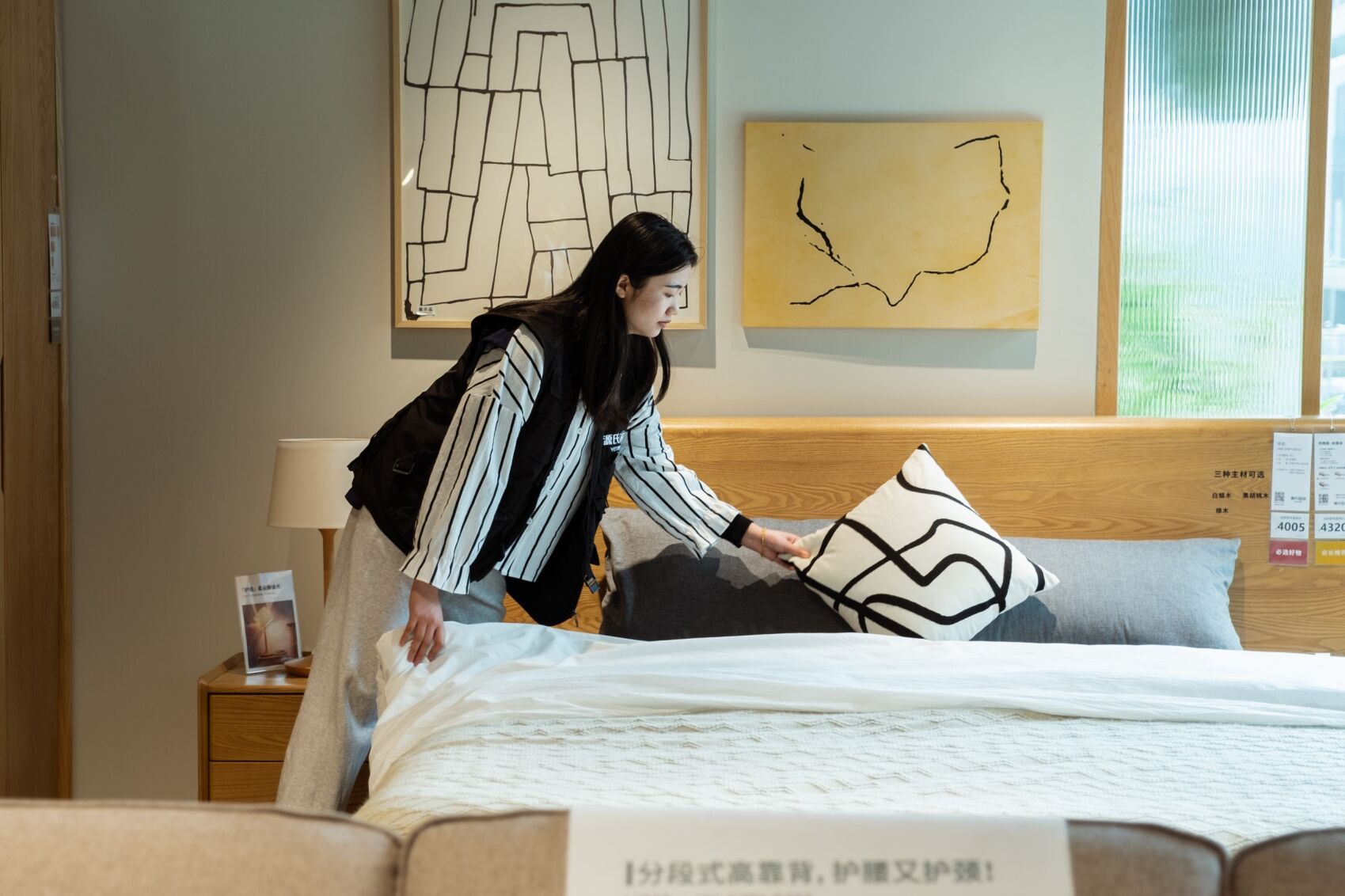
In addition to traditional stores, Yeswood has strategically focused on shopping center locations in recent years. The company has actively entered prominent brand shopping centers such as Wanda, Wuyue, and Longhu, providing consumers with convenient access to learn about and experience Yeswood’s products, gaining inspiration for home life. With the increase in the number of stores, Yeswood has also strengthened training for store service personnel, whether they are direct employees or franchise staff, ensuring they have a deep understanding of product materials, specific functionalities, and minimizing gaps in customer selection and usage scenarios.
Value Recognition Along the Way
As a brand that rapidly rose through online channels, Yeswood caught the attention of GenBridge Capital in 2018. “Good homeware” was a key focus area for GenBridge Capital based on the investment theme of “national brands.” However, the growth ceiling of furniture companies sparked discussions within the team. While it is a trillion-dollar market in China, few companies have emerged as major players compared to international counterparts.
With these questions in mind, the GenBridge team conducted joint consumer research with Yeswood. The results led to new insights: consumer preferences are highly segmented, with different demographics having personalized requirements for the aesthetics and functionality of furniture. However, a common trend is the increasing emphasis on the health and environmental aspects of furniture, with aesthetics returning to a more natural style. These changes made GenBridge realize that Yeswood’s positioning as a provider of pure solid wood furniture and the company’s capabilities in refining the upstream supply chain could enable it to better capture consumer demands, offering them healthy, well-designed products.
In the first half of 2020, GenBridge Capital and Yeswood entered into an investment partnership, with GenBridge Capital becoming the company’s first external shareholder. Insights into consumer behavior have become a pivotal anchor point in discussions between GenBridge Capital and the company regarding significant business decisions. This includes considerations related to category expansion, supply chain upgrades, and digitization efforts, while the offline retail strategy of Yeswood remains a focal point in post-investment initiatives.
As a brand born online, Yeswood initiated its offline expansion in 2015, closely aligned with consumer demands for a more hands-on experience with furniture products. From a business perspective, physical stores not only provide a closer connection with consumers but also offer opportunities for reciprocal interactions with online channels, creating a virtuous cycle. This strategic move aligns with Yeswood’s aspiration to become a national brand with a market value in the tens of billions.
Offline retail encompasses diverse formats, and the company was relatively unfamiliar with retail store operations. Effectively expanding offline became a complex challenge. Multiple discussions with the founders were held to determine the optimal approach to opening stores, considering differences between department store and shopping center models, management mechanisms for direct operations versus franchises, the pace of store openings, and store management, among other aspects.
Simultaneously, the GenBridge team shares internal in-depth research findings with the company, such as how IKEA and Nitori enhance efficiency at every stage of retail. What pleasantly surprises us is that Yeswood consistently incorporates the strengths of benchmark companies while creatively adapting to its own style. Moreover, their solutions align more closely with the ever-changing demands of China’s new generation of consumers than conventional business cases we are familiar with.
To date, GenBridge Capital has been accompanying Yeswood for over three years. During this time, the partnership has weathered the impact of the pandemic, market fluctuations, and witnessed the company’s impressive achievements across various channels, both online and offline, earning the trust of an increasing number of consumers. During an interview with founder Amy, when asked why Yeswood chose GenBridge Capital, she responded, “I believe the GenBridge team has a very thorough understanding of consumer brands. Our shared understanding of the essence of consumer business – creating value for consumers and realizing that value – is what matters most to us when choosing a partner.”
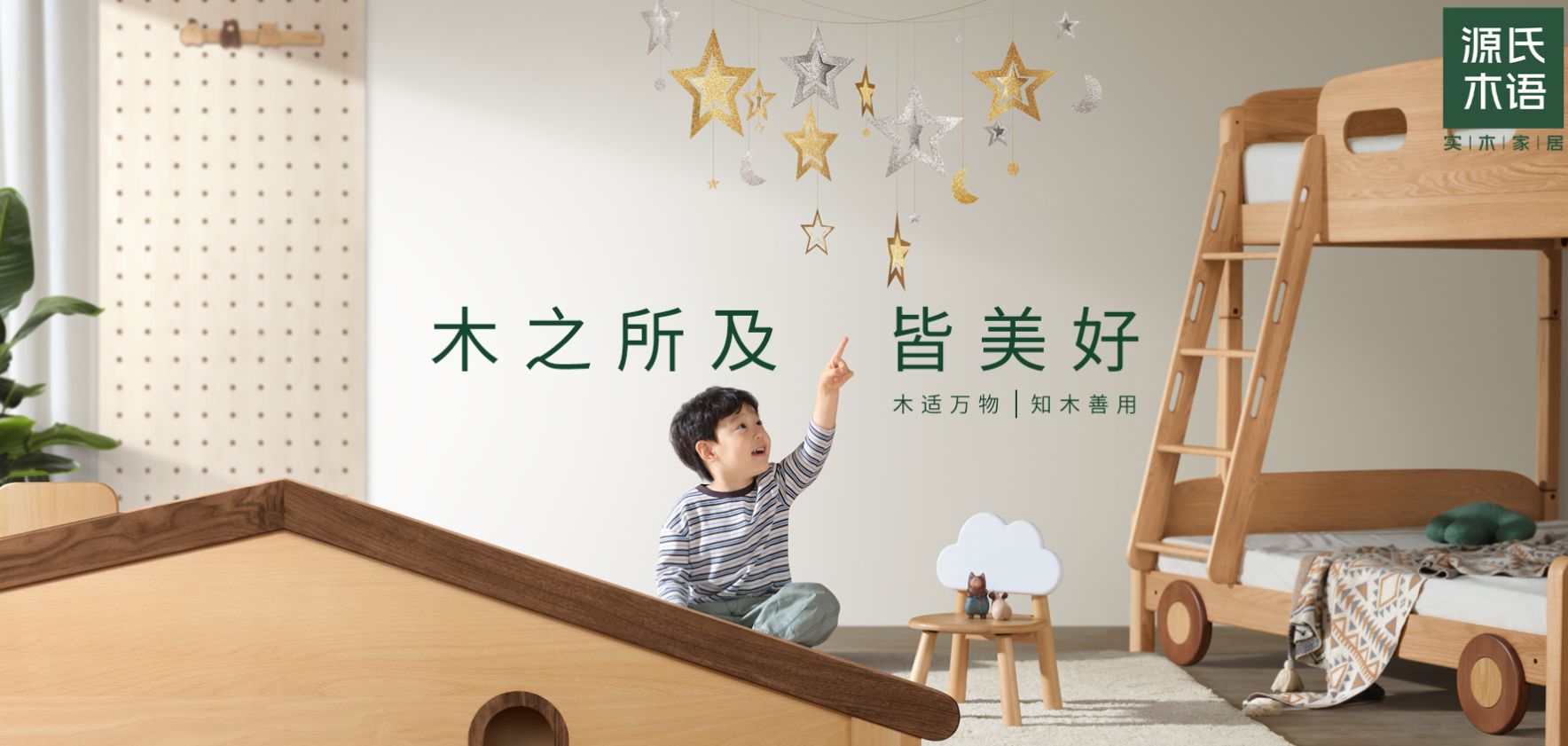
Brand upgrade represents a significant change in Yeswood’s growth journey. While pursuing exceptional products, the company also aims to convey to consumers the philosophical approach to life with solid wood furniture: integrating into life, providing lasting companionship, and allowing people to live in a more natural way.
As the founder of Yeswood expressed, brand upgrade is just one aspect of the company’s growth in communication and interaction with consumers. What remains unchanged is the company’s commitment to creating value for consumers in terms of products, quality, service, and price. This philosophy, like wood, not only takes root in the company’s past 13 years of operation but will also continue to flourish over an extended period, keeping the brand evergreen on the path of continuous iteration and upgrades in the future.


